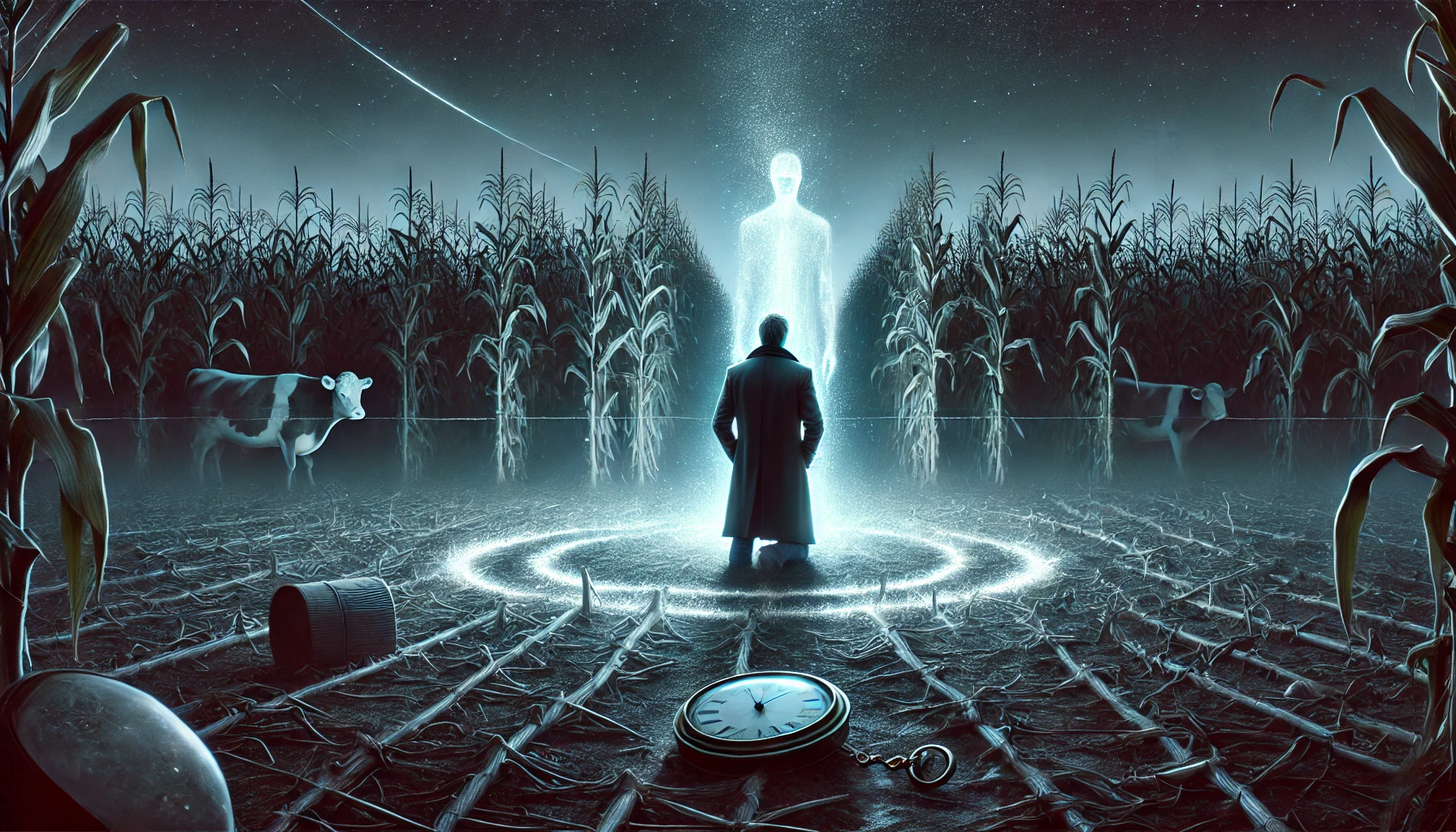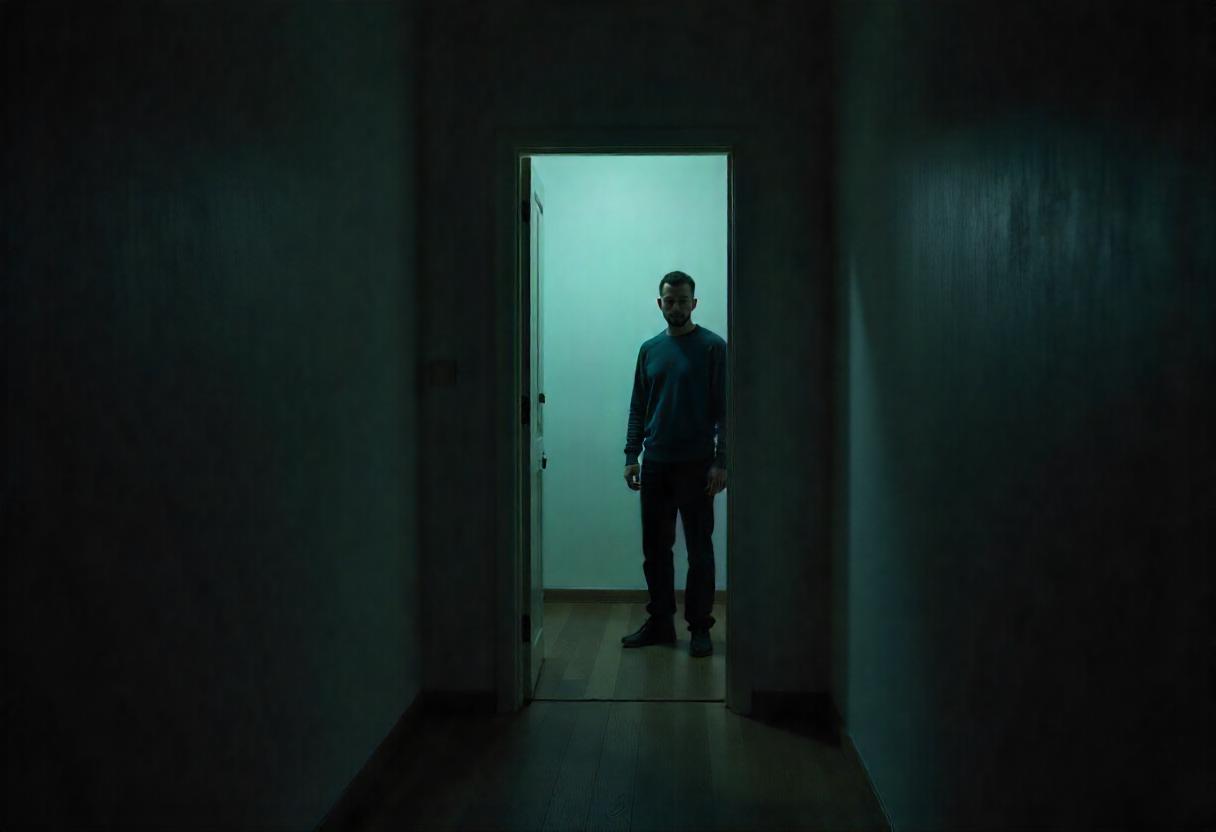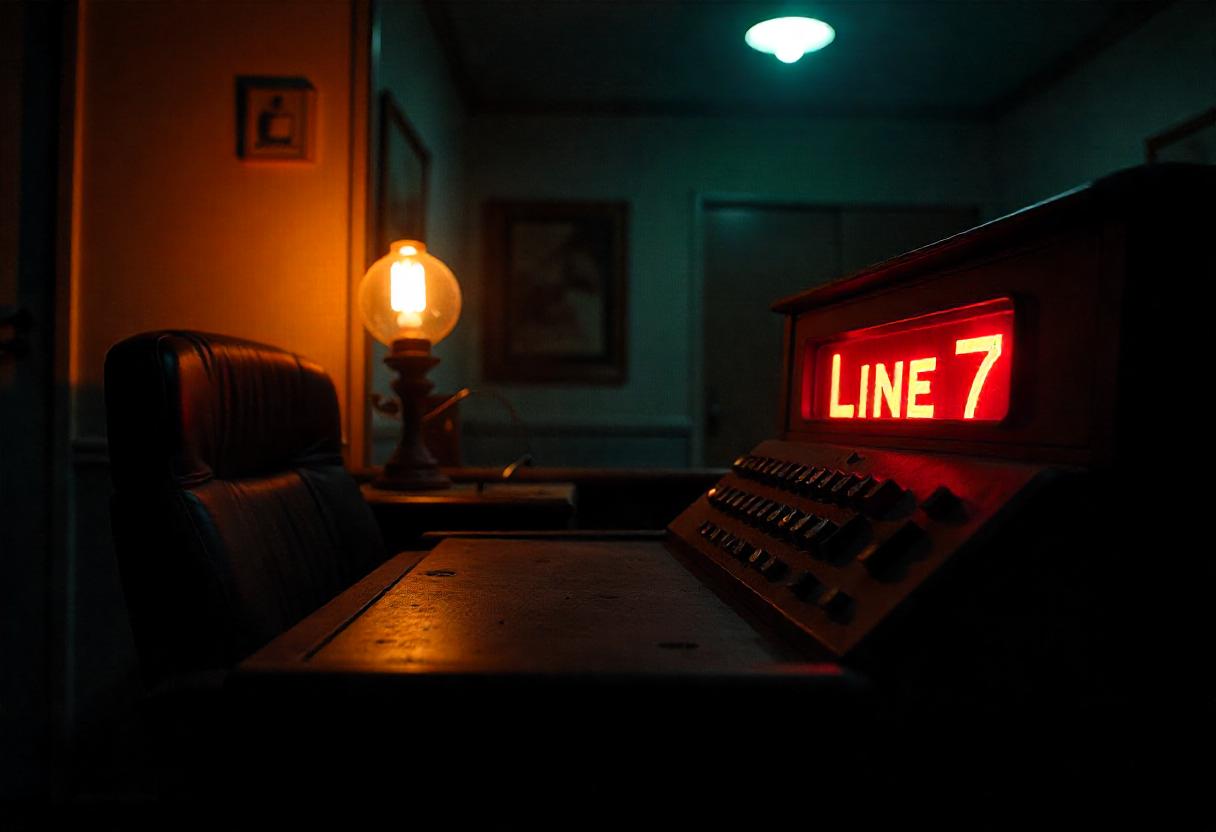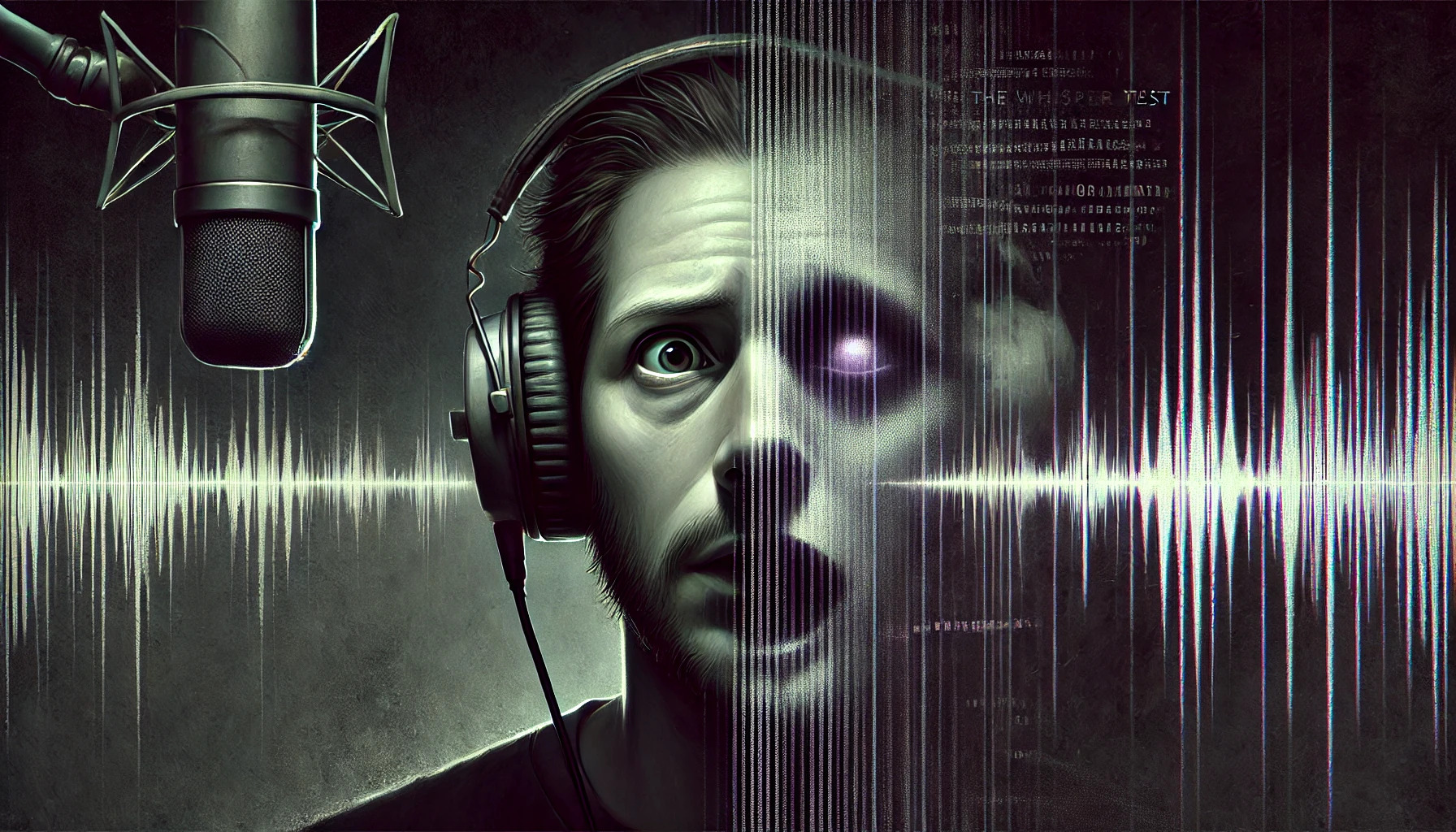
The Signal Beneath the Field
Returning to his family farm after decades, Eli begins to feel the same strange hum that surrounded his father’s unexplained disappearance years ago. As the livestock freeze and a figure of light returns to the scorched field, Eli must face what really happened that night—and decide whether to remember, or vanish like the rest.
The cows didn’t scream. They just stopped moving—every one of them, frozen mid-step in the dewy grass, like time had slipped around them.
Eli felt the hum again, low and vibrating through his ribs, just like it had the night his father disappeared in 1996.
He was eleven then, watching through the attic window as his dad stumbled into the cornfield with a shotgun, chasing lights that didn’t make a sound. He never came back. No blood. No footprints. Just the hum, and a scorched circle where the soil still wouldn’t grow.
Now thirty-eight, Eli had returned to the family farm to settle the estate. The old place smelled like dust and damp wood. His mother had passed quietly two months prior—never forgiving herself for locking the back door that night.
Eli didn’t believe in ghosts. But the land had memory. Every time he stepped into the east field, his teeth tingled, his thoughts muddied. And always—always—at 1:17 a.m., the clock in the kitchen would pause, tick once, then continue.
Tonight, that tick never came.
He stood in the kitchen barefoot, watching the second hand hover. The cows were silent. The hum rose, deeper this time, almost like a voice thinking too loud.
He grabbed the flashlight and his father’s old shotgun—more habit than need—and walked toward the circle.
The grass near the center bent inward, pulled down like magnetized hair. He passed the scarecrow, its burlap face painted with a crooked grin. The wind didn’t move it anymore.
Someone stood in the center of the field.
Not someone.
Tall. Luminous under the stars. Head tilted like a bird. No eyes, but he knew it was looking at him.
Eli froze.
Then a whisper—not out loud, but inside his skull: “You carry the memory.”
“You took him,” Eli said, voice cracking.
The figure didn’t move. But the flashlight flickered. The hum pressed in like water. A faint shape hovered beside the creature—human, transparent, tethered.
It was his father.
Or what was left of him.
Eli stepped forward. “Let him go.”
The hum rose to a sharp pitch. His skull throbbed. His father’s image blinked, shuddered, and reached out.
A memory crashed in: his father’s hand on his shoulder, saying “Stay here. No matter what you hear.”
He had gone anyway.
Eli dropped the shotgun.
Pulled the watch from his pocket—his father’s old wristwatch. Still frozen at 1:17.
He wound it.
The figure tilted again.
A whisper: “To remember is to connect. To connect is to be known.”
He snapped the watch shut.
The tether faded. So did the figure. So did the hum.
The cows began to move.
He stood alone in the circle. The grass sprang upright beneath his feet.
He looked at the watch. The second hand ticked.
Once.
Eli felt the hum again, low and vibrating through his ribs, just like it had the night his father disappeared in 1996.
He was eleven then, watching through the attic window as his dad stumbled into the cornfield with a shotgun, chasing lights that didn’t make a sound. He never came back. No blood. No footprints. Just the hum, and a scorched circle where the soil still wouldn’t grow.
Now thirty-eight, Eli had returned to the family farm to settle the estate. The old place smelled like dust and damp wood. His mother had passed quietly two months prior—never forgiving herself for locking the back door that night.
Eli didn’t believe in ghosts. But the land had memory. Every time he stepped into the east field, his teeth tingled, his thoughts muddied. And always—always—at 1:17 a.m., the clock in the kitchen would pause, tick once, then continue.
Tonight, that tick never came.
He stood in the kitchen barefoot, watching the second hand hover. The cows were silent. The hum rose, deeper this time, almost like a voice thinking too loud.
He grabbed the flashlight and his father’s old shotgun—more habit than need—and walked toward the circle.
The grass near the center bent inward, pulled down like magnetized hair. He passed the scarecrow, its burlap face painted with a crooked grin. The wind didn’t move it anymore.
Someone stood in the center of the field.
Not someone.
Tall. Luminous under the stars. Head tilted like a bird. No eyes, but he knew it was looking at him.
Eli froze.
Then a whisper—not out loud, but inside his skull: “You carry the memory.”
“You took him,” Eli said, voice cracking.
The figure didn’t move. But the flashlight flickered. The hum pressed in like water. A faint shape hovered beside the creature—human, transparent, tethered.
It was his father.
Or what was left of him.
Eli stepped forward. “Let him go.”
The hum rose to a sharp pitch. His skull throbbed. His father’s image blinked, shuddered, and reached out.
A memory crashed in: his father’s hand on his shoulder, saying “Stay here. No matter what you hear.”
He had gone anyway.
Eli dropped the shotgun.
Pulled the watch from his pocket—his father’s old wristwatch. Still frozen at 1:17.
He wound it.
The figure tilted again.
A whisper: “To remember is to connect. To connect is to be known.”
He snapped the watch shut.
The tether faded. So did the figure. So did the hum.
The cows began to move.
He stood alone in the circle. The grass sprang upright beneath his feet.
He looked at the watch. The second hand ticked.
Once.



Comments